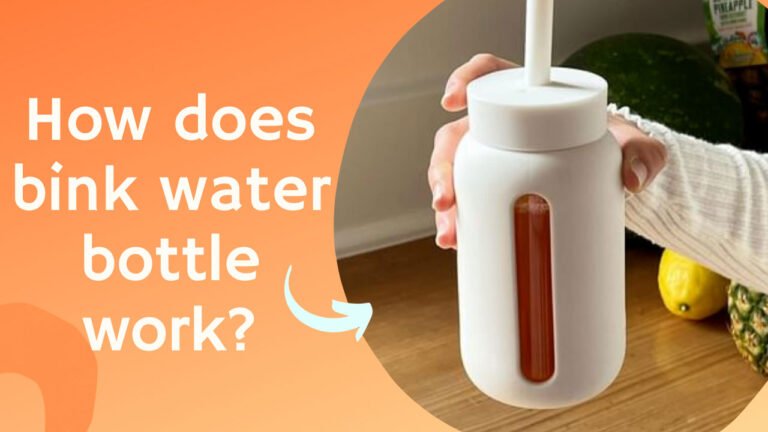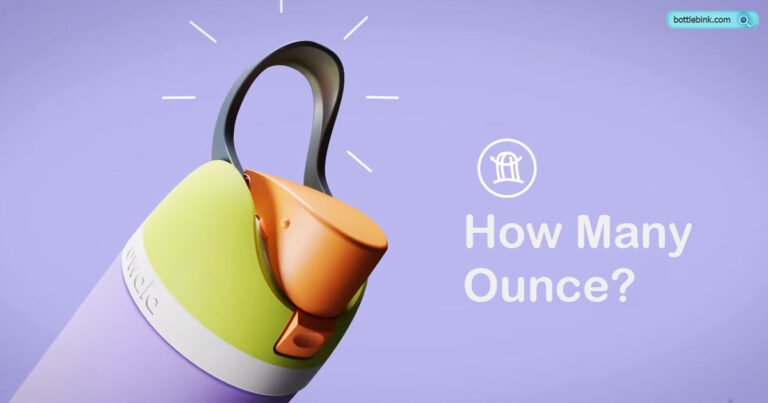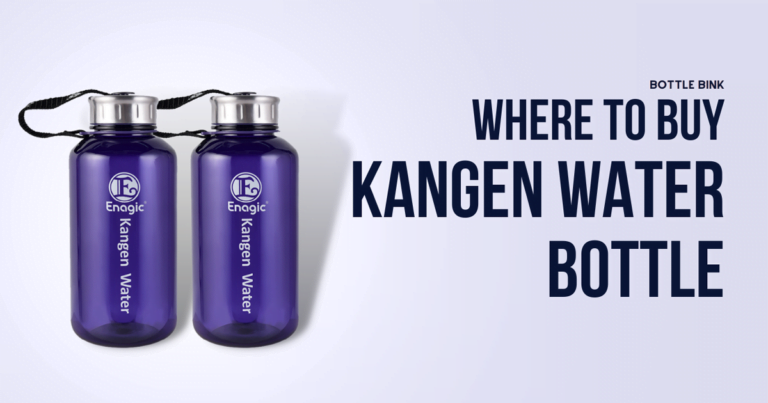Can You Microwave a Water Bottle? The Truth Revealed
No, Microwaving a water bottle is not safe due to potential chemical release and damage. Plastic water bottles should not be microwaved as it can release harmful chemicals and damage the bottle.
When it comes to microwaving water bottles, especially plastic ones, it’s crucial to consider the potential risks involved. Heating plastic bottles can lead to the release of harmful chemicals like bisphenol and antimony, posing health hazards. Not only can microwaving a water bottle damage it, but it may also contaminate your food or drink with these chemicals.
To ensure safety, it’s recommended to use microwave-safe containers and avoid heating plastic bottles in the microwave. Let’s explore the reasons behind the risks associated with microwaving water bottles and alternative ways to heat beverages safely.
The Safety Of Microwaving Water Bottles
When it comes to the safety of microwaving water bottles, many people wonder about the potential risks associated with this practice. There is a lot of speculation about whether it’s safe to microwave plastic bottles and whether BPA-free alternatives pose any risks. In this article, we will explore the safety considerations of microwaving water bottles, including the potential risks of microwaving plastic bottles and the safety of microwaving BPA-free plastic bottles.
Potential Risks Of Microwaving Plastic Bottles
When it comes to microwaving plastic water bottles, it’s essential to be aware of the potential risks involved. While it may seem convenient to quickly heat water in a plastic bottle, doing so can lead to harmful consequences. Heating plastic bottles in the microwave can cause the plastic to leach harmful chemicals into the water, contaminating it with substances like BPA and antimony.
- This leaching can be accelerated when the plastic is exposed to heat, making microwaving a particularly risky method for heating water in plastic bottles.
- The release of these chemicals into the water may have detrimental effects on your health, which is why it’s crucial to avoid microwaving plastic water bottles.
- Furthermore, the structural integrity of the plastic bottle may be compromised when exposed to high temperatures, potentially leading to chemical and physical contamination of the water.
Microwaving Bpa-free Plastic Bottles
While BPA-free plastic bottles are marketed as a safer alternative to traditional plastic bottles, concerns about their safety when microwaved still linger. It’s important to note that although BPA is eliminated from the manufacturing process of these bottles, other potentially harmful chemicals could still be released when heated.
- Despite being BPA-free, the potential release of other chemicals, such as antimony, when heated is a cause for concern and should not be overlooked.
- Heating BPA-free plastic bottles in the microwave may still pose risks to your health, as the nature of the plastic and its reaction to heat could result in chemical leaching.
In conclusion, both traditional plastic water bottles and BPA-free alternatives should not be microwaved, as the potential risks associated with chemical leaching and contamination far outweigh the convenience of heating water in this manner.

Alternatives To Microwaving Water Bottles
Using a microwave to heat a water bottle is not recommended due to the potential risks associated with plastic bottles. However, there are safer alternatives for heating water without using a microwave.
Using Microwave-safe Glass Containers
When heating water, opt for microwave-safe glass containers as an alternative to plastic water bottles. Glass containers are safe for heating in the microwave and do not release harmful chemicals.
Boiling Water In A Kettle Or Pot
Another alternative is to boil water in a kettle or pot on the stove. This method is safe, efficient, and eliminates the need for microwaving water bottles, ensuring your water stays clean and uncontaminated.
Impact On Water Quality
Microwaving a water bottle is not recommended as it can damage the bottle and release harmful chemicals into your food or drink. Plastic bottles are not safe to heat up in the microwave, so it’s best to use alternative containers that are labeled as microwave-safe.
Impact On Water Quality:
Heating water in plastic bottles can lead to the release of harmful chemicals such as bisphenol and antimony.
To ensure water purity, it is crucial to avoid microwaving plastic water bottles as it can compromise the quality of water.
Best Practices For Heating Water In The Microwave
Microwaving a water bottle is not recommended as it can damage the bottle and release harmful chemicals into the water. Plastic bottles are not safe to heat in the microwave, so it is best to use glass or ceramic containers labeled as microwave-safe.
Best Practices for Heating Water in the Microwave When it comes to heating water in the microwave, it’s essential to follow guidelines for microwaving water safely to avoid any potential hazards. Whether you’re using a microwave-safe container or a water bottle, it is important to take precautions to ensure the process is done safely. Let’s take a closer look at the best practices for heating water in the microwave.
Guidelines for Microwaving Water Safely To microwave water safely, use a microwave-safe container such as a glass or ceramic bowl to heat the water. Avoid using plastic containers as they can release harmful chemicals when exposed to high temperatures.
It’s also recommended to use a microwave-safe lid or cover when heating water to prevent spills and splatters inside the microwave. Precautions to Take When heating water in the microwave, it’s important to take certain precautions to ensure safety.
Here are some key precautions to keep in mind:
– Use a microwave-safe container: Always use a container that is specifically labeled as microwave-safe to heat water in the microwave.
– Avoid using plastic water bottles: Plastic water bottles are not suitable for heating in the microwave as they can release harmful chemicals when exposed to heat.
– Use a microwave-safe lid: When heating water in the microwave, use a lid or cover that is labeled as microwave-safe to prevent any splatters or spills.
– Follow the manufacturer’s instructions: Be sure to follow any specific instructions provided by the manufacturer of the container or water bottle when microwaving water.
By following these guidelines and taking the necessary precautions, you can safely heat water in the microwave without risking any potential hazards. Always prioritize safety when using the microwave for heating water to prevent any accidents or harmful chemical exposure.

What are the disadvantages of microwaving water?
Many people rely on microwaves to quickly heat water for their daily needs. However, it is important to be aware of the disadvantages of microwaving water. One major drawback is the potential for uneven heating.
Due to the uneven distribution of microwaves in the oven, some parts of the water may become extremely hot while others may remain cold. This can lead to uneven temperatures, making it difficult to achieve the desired result, such as brewing the perfect cup of tea or coffee.
Furthermore, microwaving water in certain containers can be hazardous. When water is heated in a microwave, it can easily become superheated, meaning it is heated beyond its boiling point without actually boiling. Superheated water can unexpectedly explode or erupt when disturbed, causing serious injuries.
To avoid these disadvantages, it is recommended to use alternative methods, such as heating water on a stovetop or using electric kettles, which provide more consistent and safer results.
How to Identify when A Water Bottle is not Microwave Safe?
When it comes to microwaving water bottles, it’s important to know which ones are safe to zap and which ones aren’t. While most plastic water bottles are designed to be microwave-safe, it’s crucial to check the label or packaging to ensure that the bottle is safe for use in the microwave.
Look for the specific indication that the water bottle is microwave-safe, usually denoted by an icon or text on the bottom of the bottle. Avoid microwaving bottles that are made from non-microwave-safe materials, such as certain types of plastic or metal.
By following these simple precautions, you can ensure the safety and longevity of your water bottles while using them in the microwave.
FAQs Of Can You Microwave A Water Bottle
Is It Safe To Microwave Bottled Water?
Microwaving bottled water is not safe. The plastic can release harmful chemicals, damaging the bottle and contaminating your food or drink. Always use microwave-safe containers.
Is It Safe To Microwave Plastic Bottles?
It is not safe to microwave plastic bottles as they can release harmful chemicals.
Is It Safe To Heat Water Bottle?
Heating a water bottle is not safe as plastic bottles release harmful chemicals when heated. Avoid microwaving unless labeled safe.
What Happens If You Heat Up A Plastic Water Bottle?
Heating a plastic water bottle can release harmful chemicals into your drink or food. It may also damage the bottle.
Conclusion
Microwaving a water bottle is not safe due to the potential release of harmful chemicals and damage to the bottle. It is essential to use microwave-safe containers and follow instructions for heating food. To ensure the safety of both the container and your health, avoid microwaving plastic water bottles and opt for alternatives like glass or ceramic containers.
Stay informed and make healthy choices for your well-being.






